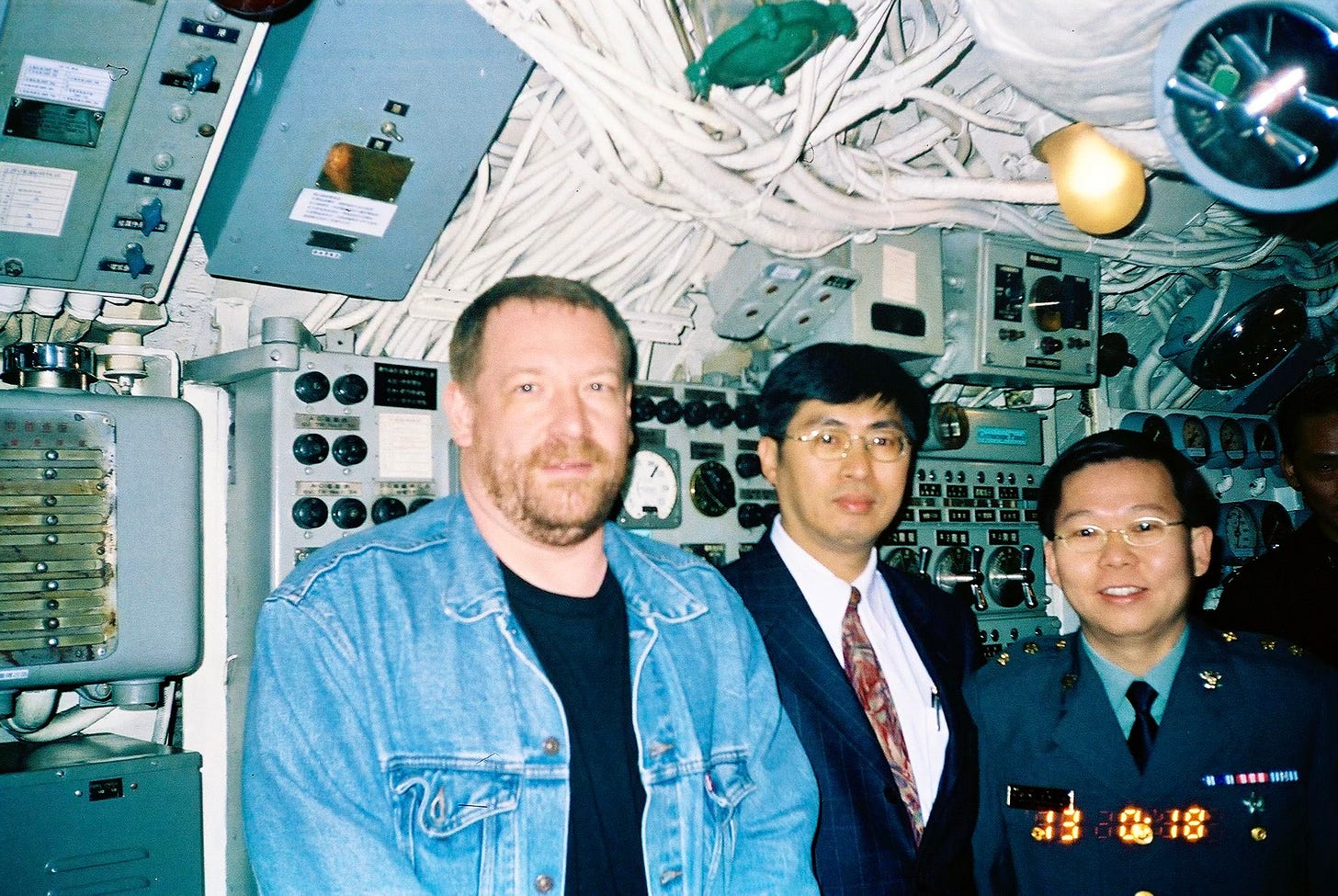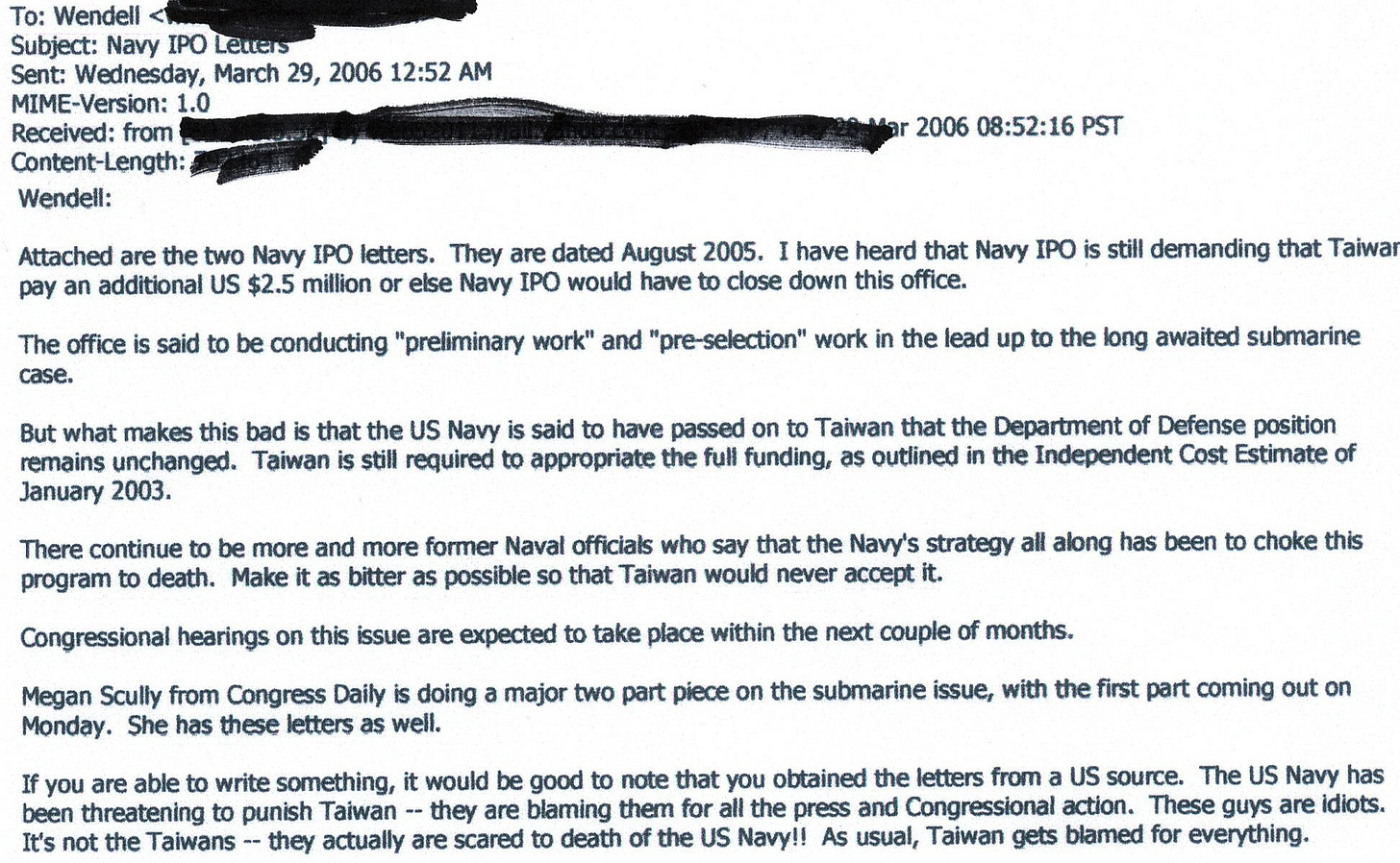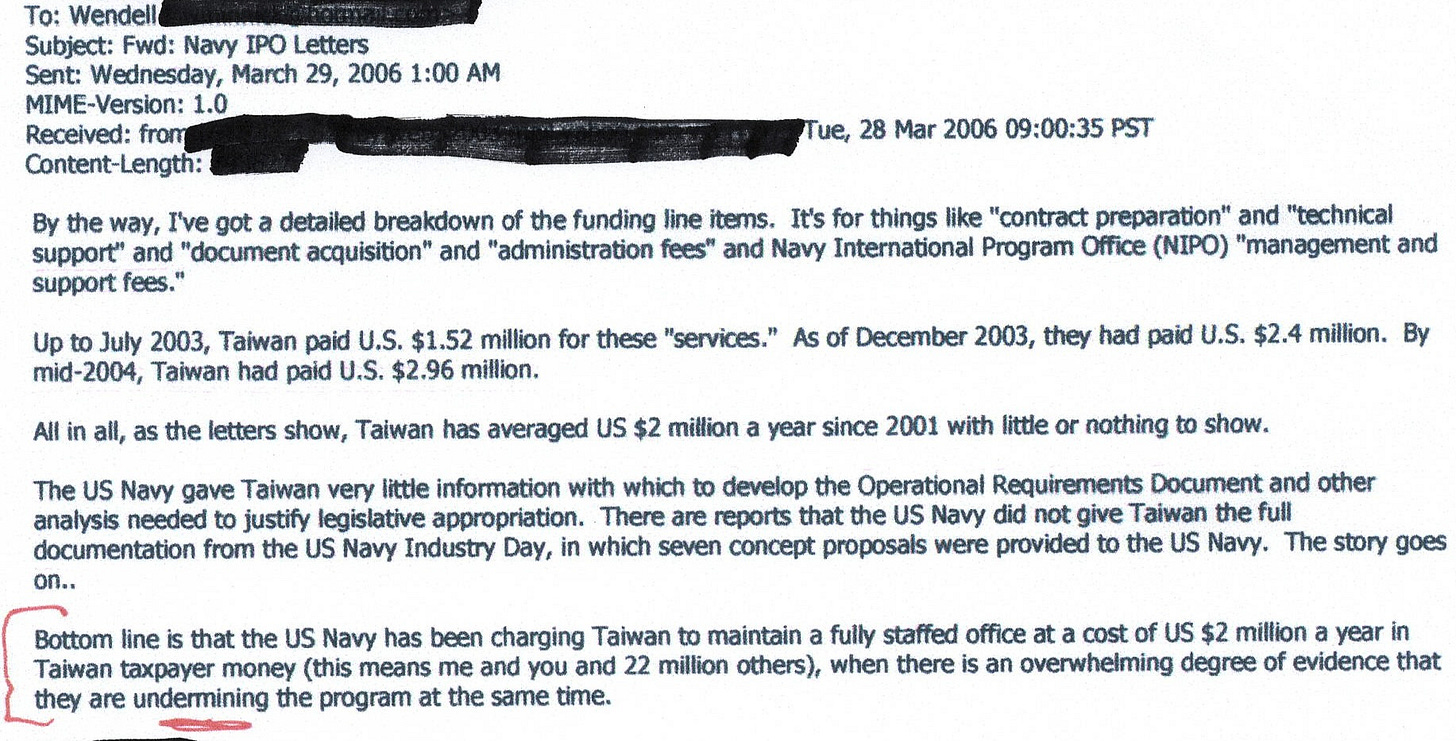
China In Arms BOOKSTORE and GIFT SHOP!
Follow on Twitter
Subscribe: $5 Month/$50 Annual (unable to secure a subscription contact the bank for permission for Stripe deposits).
11 July 2023 (Tuesday)
Taiwan’s Submarine Nightmare, Documents
Despite US Offer, Pacific Command Unhappy
By Wendell Minnick (Whiskey Mike) 顏文德
Note to Reader: the below U.S. Navy Pacific Command documents are available for paid subscribers only.
TAIPEI - From day one of the U.S. offer to assist Taiwan on the procurement and/or build of diesel attack submarines in 2001, the U.S. Pacific Command (now INDOPACOM) has attempted to kill the program.
Why?
First, additional submarines in the water meant more work for anti-submarine warfare (ASW). Taiwan was an annoyance, but many Asian navies were procuring submarines - Indonesia, Malaysia, Singapore, Vietnam, not to mention U.S. allies Australia, Japan and Korea. The U.S. Navy was finding it difficult to sort out friend or foe.
Second, underwater congestion also meant that collisions were more likely and in the 2000s, and even today, there are few underwater rescue submersibles in the region for the job. The U.S. Navy certainly does not want a poorly trained submarine crew crashing into one of its submarines (this includes everyone in the region with attack submarines, not just Taiwan).
Third, the U.S. Navy also did not want the U.S. Congress noticing that diesel-electric submarines were quieter and cheaper than nuclear powered submarines. The U.S. Navy’s “Nuke Sub Club” viewed the cheaper alternatives as rivals to their own nuclear-powered attack submarines.
But Taiwan had a problem. China’s submarine fleet was massive in 2001; averaging around 40 depending on the research.
Taiwan needed submarines to supplement the two operational Dutch-built Zwaardris submarines in need of refitting. Taiwan still has two World War 2 era Guppy-class submarines, but they were for training and rumored too dangerous for submersion even in 2001.
In March 2006, I received several explanatory E-mails from a source within the U.S. Department of Defense complaining about the U.S. Navy’s IPO (International Program Office) efforts to kill the Taiwan submarine program.
Below are the E-mails, but below those are two U.S. Navy IPO letters, dated 1 August 2005 and 4 August 2005, written by D.W. Robey, then Director, Pacific Command Division, to Rear Admiral Wu Tai-Wei, then Director, Defense Procurement Division, Taipei Economic and Cultural Representative Office (TECRO) in Washington, D.C. (the de facto Taiwan embassy).
ABOVE: 1/3





